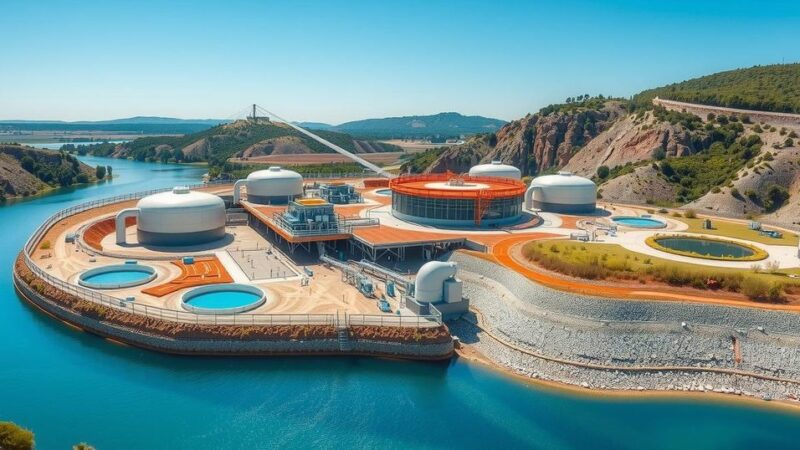China faces significant public backlash due to an acid waste spill from a copper mine in Zambia, contaminating the Kafue River and affecting the water supply for thousands. The incident intensifies anti-Chinese sentiment in Zambia amidst ongoing investment strategies, while the economic landscape for copper demand appears precarious. Concurrently, China seeks to counter U.S. ventures in Panama, further complicating its international standing.
A significant public relations challenge has emerged for China following a severe acid spill at a Chinese-owned copper mine in Zambia. This incident, which occurred last month, has contaminated the Kafue River, Zambian’s vital water source that supports approximately 700,000 residents in Kitwe. The spill of 50 million liters of acidic waste poses serious environmental concerns, with potential downstream effects reaching the Zambezi River, Africa’s fourth-longest river.
Copper mining, an essential industry in Zambia, faces increasing scrutiny as the country aims for expansion through Chinese investment. However, the contamination incident exacerbates anti-Chinese sentiment within Zambia, especially as public trust in Chinese operations diminishes amidst past labor disputes and debt concerns. While Zambia’s leaders have historically welcomed Chinese investment, the recent disaster may shift public opinion and influence political dynamics.
Impact on copper demand is also probable, given the ongoing crises in China’s real estate market and a push for domestic manufacturing under President Xi Jinping. Should these factors affect Chinese smelting operations, a decline in copper prices could follow, adversely impacting Zambians and other copper-producing nations.
In a broader context, China is simultaneously attempting to undermine a U.S.-led initiative involving the purchase of Panama Canal ports, responding to perceived U.S. encroachment on its sphere of influence. Moreover, cuts to Voice of America and Radio Free Asia by the Trump administration threaten the dissemination of expert knowledge on China within the United States, reflecting a shift in the ideological landscape of U.S.-China relations.
In summary, these developments indicate a complex interplay of economic, environmental, and geopolitical factors. China must navigate the ramifications of the Kafue River spill while balancing its strategic interests in Zambia against growing local and international scrutiny.
In conclusion, China’s public relations crisis stemming from the Kafue River spill highlights the delicate balance of investment and sentiment in Zambia. The incident not only poses environmental risks but could also affect political relations within the country and lead to shifts in public opinion against Chinese involvement. As global copper demand remains crucial, China must address these challenges while maneuvering through geopolitical tensions that arise internationally.
Original Source: foreignpolicy.com






